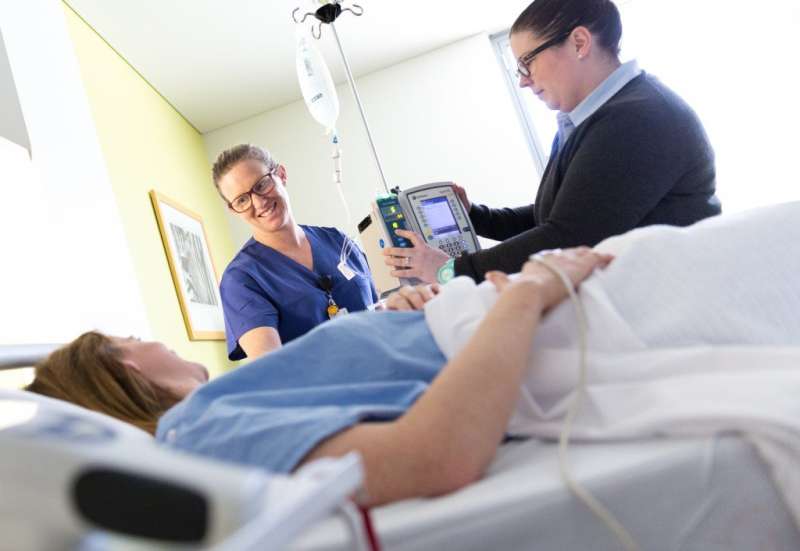Almost half of deaths of people with disability are linked to how documentation is handled

Research released by the Australian Institute of Health Innovation, Macquarie University, and the Graduate School of Health, UTS, shows that almost half of people with disability living in residential care were exposed to risk of death or died related to failures in information sharing and communication.
The study, funded by the National Health and Medical Research Council, showed that information that could affect the quality of care for people with disability was being overlooked, ignored, or was not accessible to care providers.
People with severe or profound disability living in supported accommodation or long-term care facilities often acquire a large quantity of documentation critical to their safety and care.
They often have complex needs and see many different health and disability service providers including the residential facility, GPs, hospitals and allied health professionals.
All these providers produce a variety of documents, but these are rarely collated or linked in a way that helps the person, their carers, families, or providers.
Documentation includes medical histories, medication information, safe mealtime plans, behavioural plans, incident reports, speech pathology or physiotherapy recommendations and family contact details.
Lead author and Research Fellow at the Australian Institute of Health Innovation, Dr. Mary Dahm, said: "Important health information is being overlooked or lost in a system that does not communicate well across different services and does not include the individual patient or their families in health decisions."
For instance, this research found that some people who died of aspiration pneumonia (a condition caused by inhaling food, stomach acid or saliva into lungs), had safe foods recommended for them by a speech pathologist and written into a mealtime plan, but this was not adopted by the disability service provider.
The study also found that a person could have an accident such as a choking, but no incident report was made which would have alerted staff to act to prevent further choking.
Lead researcher, Professor Bronwyn Hemsley, Head of Speech Pathology at UTS, said "Dr. Dahm's work as an applied linguist was vital in this study. Analysing how information is transferred from one person in one place to another, and what happens if it is lost, mishandled, or misinterpreted is vital to understanding care quality and safety."
"This gap between what is known to be the best care and what is actually delivered endangers the lives of people with disability," Dr. Dahm said.
Dr. Dahm also points to a need for better education of the workforce in residential and long-term care and health services.
One of the barriers to good communication of safety and care information was that direct support workers had little or no experience of healthcare and did not understand the importance of the information in the client's records.
Conversely, a speech pathologist in the community may recommend certain foods for a resident with disability, and strategies are successfully implemented by care workers at home. However, when the person enters hospital, staff may not locate, read or follow the recommendation from the home and then provide unsuitable food or fail to provide adequate meal-time assistance, leading to choking, aspiration pneumonia and preventable death in hospital.
These findings trigger a call for better education of workers in residential care facilities and healthcare about the needs of people with disability.
Mr Jim Simpson, Senior Advocate with the Council for Intellectual Disability says: "It is appalling and unacceptable that the lives of people with disability are being put at risk by inadequate systems to document their healthcare needs. Health agencies and the NDIS must act now to right this wrong."
A person-centred model of care is essential. Dr. Dahm said: "Our review of documentation also showed that where there is good communication and information shared between all of the service providers, and includes input from the person with the disability and their family, there will be a much better outcome for patients."
This research published in the Journal of Patient Safety is an analysis of 99 case studies extracted from eight NSW Ombudsmen reports of reviewable deaths between 2005 and 2015.
More information: Maria R. Dahm et al. Health Information and the Quality and Safety of Care for People With Disability, Journal of Patient Safety (2018). DOI: 10.1097/PTS.0000000000000550




















